Introduction à Rubber Tracks for Mini Excavators
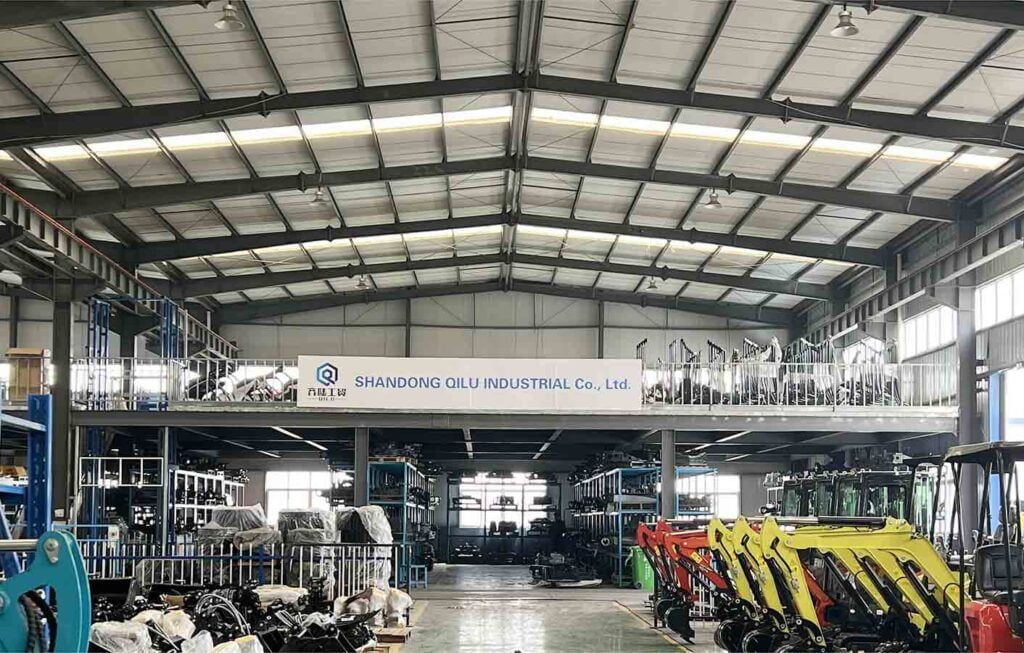
How Will Rubber Tracks For Mini Excavator Used Be In The Future.When it comes to construction projects, efficiency is everything. And with advancements in technology and innovative solutions constantly emerging, it’s no surprise that mini excavators equipped with rubber tracks are taking the industry by storm. These sleek and durable tracks have revolutionized the way we approach excavation work, offering a range of advantages over traditional steel tracks.
In this blog post, we will delve into the world of rubber tracks for mini excavators and explore their current usage trends in the construction industry. But more importantly, we’ll gaze into our crystal ball and uncover how these remarkable inventions will shape the future of construction efficiency like never before!
So buckle up your hard hats and get ready to dive deep into an exciting world where rubber meets productivity! Let’s explore why these versatile tracks are creating waves among contractors worldwide.
Avantages de l'utilisation Rubber Tracks for Mini Excavators
Rubber tracks have become increasingly popular in the construction industry, especially for mini excavators. These tracks offer a wide range of advantages over traditional steel tracks, making them a preferred choice for many contractors and operators.
One major advantage of rubber tracks is their superior traction. The flexible nature of rubber allows the tracks to grip uneven terrain more effectively, providing better stability and maneuverability in challenging work environments. This enhanced traction ensures that mini excavators can navigate through muddy or rocky surfaces with ease, minimizing the risk of getting stuck.
Another key benefit is the reduced impact on surfaces. Unlike steel tracks that can cause damage to paved roads or delicate landscapes, rubber tracks are gentler on surfaces. They distribute weight evenly and exert less pressure on the ground, reducing soil compaction and preserving the integrity of underlying structures.
In addition to surface protection, rubber tracks also contribute to noise reduction during operation. Their cushioning effect absorbs vibrations and minimizes noise levels compared to steel alternatives. This feature not only improves working conditions but also reduces disturbances in residential areas where construction projects may be taking place.
Furthermore, maintenance costs are often lower with rubber tracks as they generally require fewer replacements than steel ones. Rubber has excellent durability against wear and tear from abrasive materials commonly encountered on construction sites such as gravel or asphalt. This longevity translates into cost savings over time since there is less need for frequent track replacement.
Versatility is a significant advantage when it comes to rubber tracks for mini excavators. These lightweight yet sturdy components allow machines to operate across various terrains without compromising performance or efficiency. Whether it’s digging trenches in soft soil or accessing tight spaces with limited clearance, rubber-tracked mini excavators can handle diverse tasks effectively.
Using rubber tracks offers numerous benefits for mini excavator operations – improved traction on different terrains; reduced impact on surfaces; quieter operation; lower maintenance costs; and versatility for various job sites.
Current Trends and Usage of Rubber Tracks in the Construction Industry
Rubber tracks for mini excavators have become increasingly popular in the construction industry due to their numerous advantages over traditional steel tracks. One of the current trends is the growing demand for rubber tracks, as more and more contractors are realizing their benefits.
One of the main reasons why rubber tracks are being widely used is because they offer better traction and stability on various terrains. This allows mini excavators to maneuver with ease, even in challenging environments such as muddy or uneven surfaces. The flexibility of rubber tracks also helps reduce damage to delicate surfaces like pavement or grass.
Another trend in the usage of rubber tracks is their compatibility with different types of mini excavators. Manufacturers are now offering a wide range of options that can fit various models and sizes, making them accessible to a larger customer base.
Additionally, advancements in technology have led to improved durability and longevity of rubber tracks. They are designed to withstand heavy loads without wearing out quickly, which reduces maintenance costs for construction companies.
Furthermore, there has been an increasing focus on reducing noise pollution at construction sites. Rubber tracks help dampen vibrations and minimize noise levels compared to steel tracks, making them ideal for urban areas where noise restrictions may be enforced.
The versatility of rubber tracks has also contributed to their popularity among contractors. They can be used effectively across different applications like landscaping projects, utility work, digging trenches, or demolishing structures.
It’s evident that there’s a growing trend towards using rubber tracks for mini excavators in the construction industry today. Their superior traction capabilities on various terrains coupled with compatibility across different machines make them an attractive choice for contractors looking to enhance productivity and efficiency while minimizing environmental impact
L'avenir de Rubber Tracks for Mini Excavators: Technological Advancements and Innovations
Technological advancements and innovations have always played a significant role in shaping the future of various industries, including construction. The same can be said for rubber tracks used in mini excavators. As we look to the future, it is clear that there are several exciting developments on the horizon.
One area of focus is improving durability and longevity. Manufacturers are investing in research and development to create rubber tracks that can withstand even more rigorous conditions. This means contractors will benefit from reduced downtime due to track replacements, ultimately leading to increased productivity on construction sites.
Another aspect being explored is enhancing traction capabilities. By utilizing advanced materials and design techniques, manufacturers aim to optimize grip and stability for mini excavators operating on challenging terrain. This will result in improved performance and maneuverability, allowing operators to work with greater precision.
Furthermore, there is a growing emphasis on reducing noise pollution caused by heavy machinery. Rubber tracks offer a quieter alternative compared to traditional steel tracks, making them an attractive option for projects taking place near residential areas or during sensitive hours.
Additionally, technology integration holds great potential for the future of rubber tracks. With the rise of smart machines and automation, we may see innovative features such as self-monitoring systems that alert operators when maintenance or replacement is required.
The utilization of advanced sensors could also allow for real-time tracking of performance metrics like temperature or pressure distribution across the rubber track surface. This data can help identify potential issues before they escalate into costly problems.
In conclusion, the future looks promising for rubber tracks used in mini excavators thanks to continuous technological advancements and innovation efforts within the industry. These developments will undoubtedly enhance durability, improve traction capabilities, reduce noise pollution,and potentially bring about smarter machines optimized for efficiency – all contributing factors towards increased productivity on construction sites while minimizing environmental impact
Impact on Efficiency and Productivity in Construction Projects
Rubber tracks for mini excavators have proven to be a game-changer when it comes to efficiency and productivity in construction projects. These versatile tracks offer several advantages over traditional steel tracks, leading to improved performance and increased output.
One of the key benefits of rubber tracks is their ability to provide better traction on different terrains. This means that mini excavators equipped with rubber tracks can navigate through rough or uneven surfaces with ease, resulting in faster completion of tasks. The enhanced maneuverability also allows operators to work more efficiently, reaching tight spaces without difficulty.
Furthermore, rubber tracks help reduce vibration during operation. This not only minimizes operator fatigue but also reduces the wear and tear on the machine itself. As a result, maintenance costs are reduced while uptime is increased, leading to higher productivity levels.
In addition, the lightweight nature of rubber tracks contributes significantly to fuel efficiency. Compared to their steel counterparts, rubber tracks exert less pressure on the ground surface, requiring less power consumption for movement. This translates into cost savings and extended operational hours without compromising performance.
Moreover, these modern tracks are designed for durability and longevity even under strenuous working conditions. With their resistance against cuts and punctures as well as superior shock absorption capabilities, they ensure uninterrupted operations throughout various construction projects.
By incorporating advanced technology into these rubber track systems such as innovative tread patterns or self-cleaning features; manufacturers continue striving towards further enhancing efficiency levels within this industry segment.
As contractors increasingly recognize these benefits; there has been a growing demand for mini excavators equipped with rubber tracks across construction sites worldwide.
The impact on efficiency and productivity cannot be understated – from reduced downtime due to maintenance issues or terrain limitations; decreased fuel consumption resulting from improved traction; all contribute towards streamlined workflows ultimately translating into time-saving measures which enhance overall project success rates.
Environmental Benefits of Using Rubber Tracks over Traditional Steel Tracks
The environmental benefits of using rubber tracks for mini excavators are becoming increasingly recognized in the construction industry. Unlike traditional steel tracks, which can cause damage to sensitive surfaces and increase soil compaction, rubber tracks provide a more environmentally-friendly alternative.
Rubber tracks have lower ground pressure compared to their steel counterparts, meaning they distribute the weight of the machine over a larger surface area. This helps prevent damage to delicate terrain such as lawns or landscaped areas.
Additionally, rubber tracks reduce noise pollution during operation. Construction sites are notorious for being noisy environments, but with rubber tracks, the vibrations and impact noises generated by machinery are significantly reduced. This is especially important in urban areas where noise regulations may be stricter.
Furthermore, rubber tracks offer improved fuel efficiency. The flexible nature of these tracks allows for better traction on various terrains while reducing slippage and tire wear. As a result, less power is required to operate the mini excavator efficiently, leading to lower fuel consumption and reduced carbon emissions.
Another significant advantage of using rubber tracks is their ability to minimize damage to paved surfaces such as roads or driveways. Steel tracks can be harsh on asphalt or concrete due to their rigid structure and sharp edges. Rubber track pads absorb shock and distribute weight evenly across the surface without causing excessive wear or cracking.
In conclusion, it’s clear that choosing rubber tracks for mini excavators offers several environmental benefits compared to traditional steel alternatives. They help protect sensitive terrain from damage while reducing noise pollution and improving fuel efficiency. With ongoing technological advancements in material composition and design, we can expect even greater eco-friendly features from future generations of rubber track systems.
Challenges and Limitations for Widespread Adoption

While rubber tracks for mini excavators offer numerous advantages, there are also some challenges and limitations that need to be considered. One challenge is the initial cost of purchasing rubber tracks compared to traditional steel tracks. Rubber tracks can be more expensive upfront, which may deter some construction companies from making the switch.
Another limitation is the potential for damage or wear on rubber tracks in rugged terrains or harsh weather conditions. While modern rubber track technology has improved durability, extreme environments can still pose a risk to their longevity.
Maintenance and repair are also factors to consider. Although rubber tracks generally require less maintenance than steel tracks, they may still need periodic inspections and replacements if damaged. This adds an additional task for operators who already have various responsibilities on-site.
Furthermore, not all mini excavators are compatible with rubber track systems due to variations in machine design and specifications. This may limit the options available for certain models or brands of equipment.
While environmental benefits exist with using rubber tracks over traditional steel ones (such as reduced noise pollution), widespread adoption might face resistance from those resistant to change or hesitant about trying new technologies.
In conclusion,despite these challenges and limitations, it’s important not to overlook the significant advantages that come with using rubber tracks for mini excavators. As technology continues to advance and address these concerns, we can expect further improvements in durability, compatibility across different machines, and affordability. With ongoing research and development efforts in this field, it’s likely that these obstacles will diminish over time – paving the way towards a future where rubber tracks become standard equipment in construction projects around the world!
Conclusion
The future of rubber tracks for mini pelles looks promising. With ongoing technological advancements and innovations in the construction industry, these versatile tracks are poised to become even more efficient and effective in various applications.
The advantages of using rubber tracks, such as enhanced maneuverability, reduced noise levels, improved traction, and lower ground disturbance make them a preferred choice for many construction projects. They not only increase productivity but also contribute to a safer working environment.
Furthermore, as environmental concerns continue to grow, the use of rubber tracks over traditional steel tracks offers significant benefits. The reduced impact on delicate terrain helps preserve ecosystems while minimizing soil compaction and damage.
Although challenges and limitations exist for widespread adoption of rubber tracks for mini excavators, manufacturers are continually striving to overcome these obstacles through research and development efforts. As technology progresses further, we can expect to see even more advanced designs that address current shortcomings.
Overall, it is clear that rubber tracks have revolutionized the construction industry by providing numerous advantages over their steel counterparts. Their ability to adapt to various terrains and withstand heavy workloads makes them an indispensable tool for contractors worldwide.
As the demand for efficiency increases within the construction sector, it is safe to say that rubber tracks will play an integral role in shaping its future landscape. So keep an eye out for new developments in this field as they are set to transform how mini excavators operate!





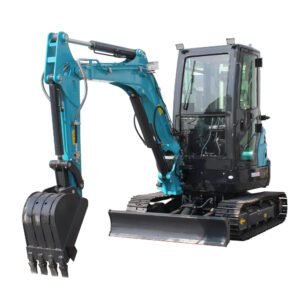
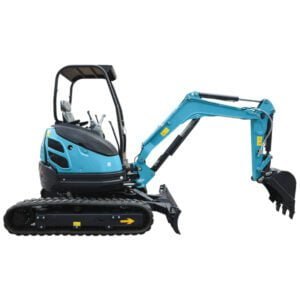
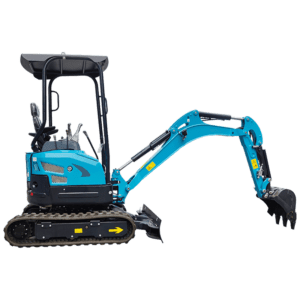

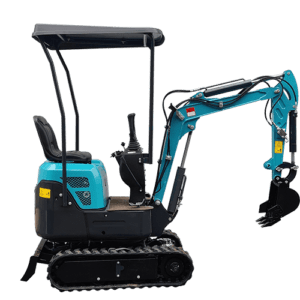

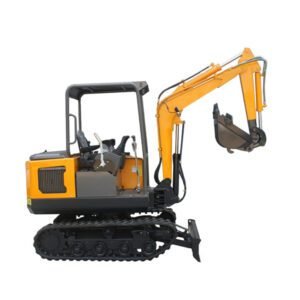

-1.png)